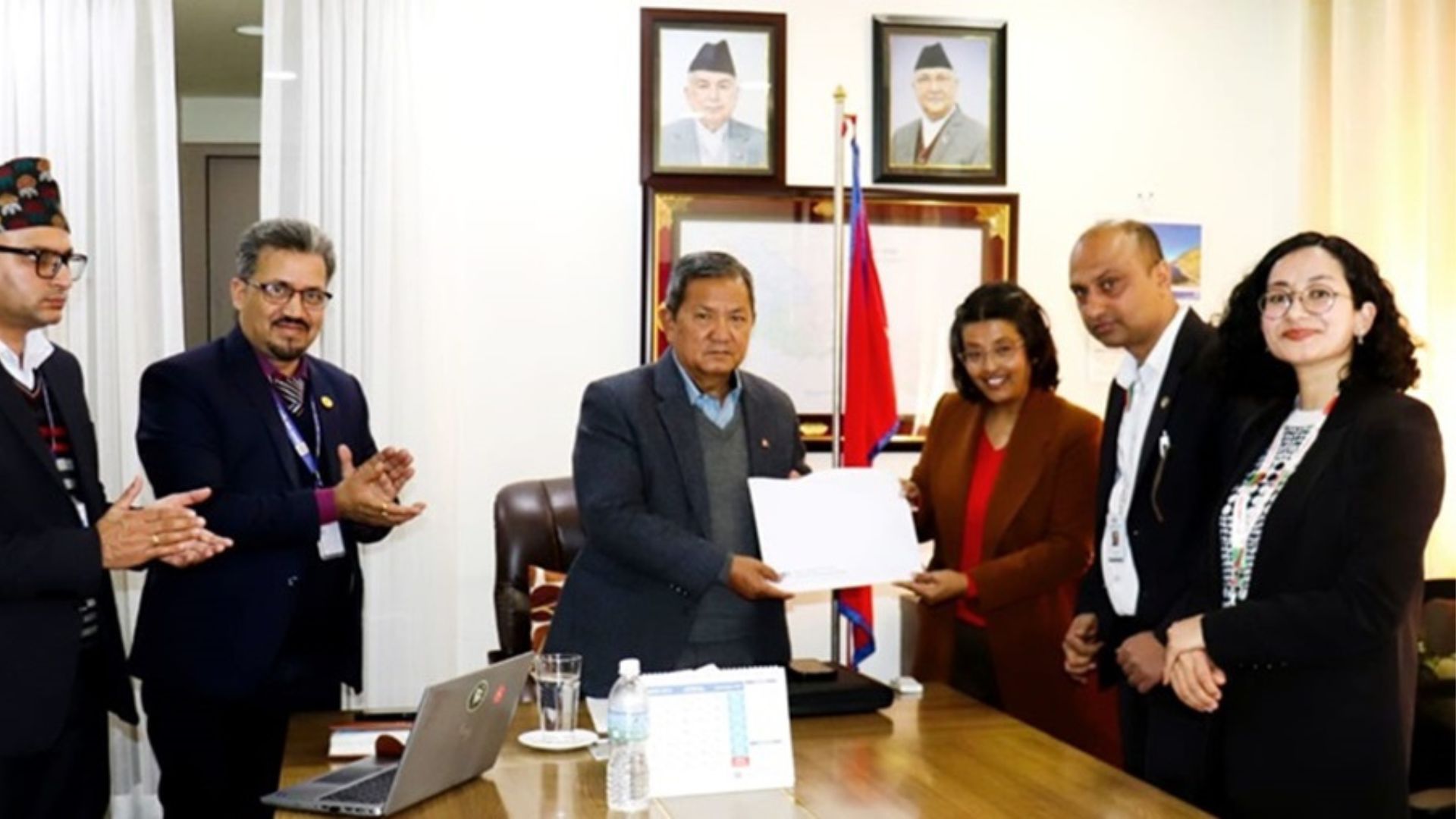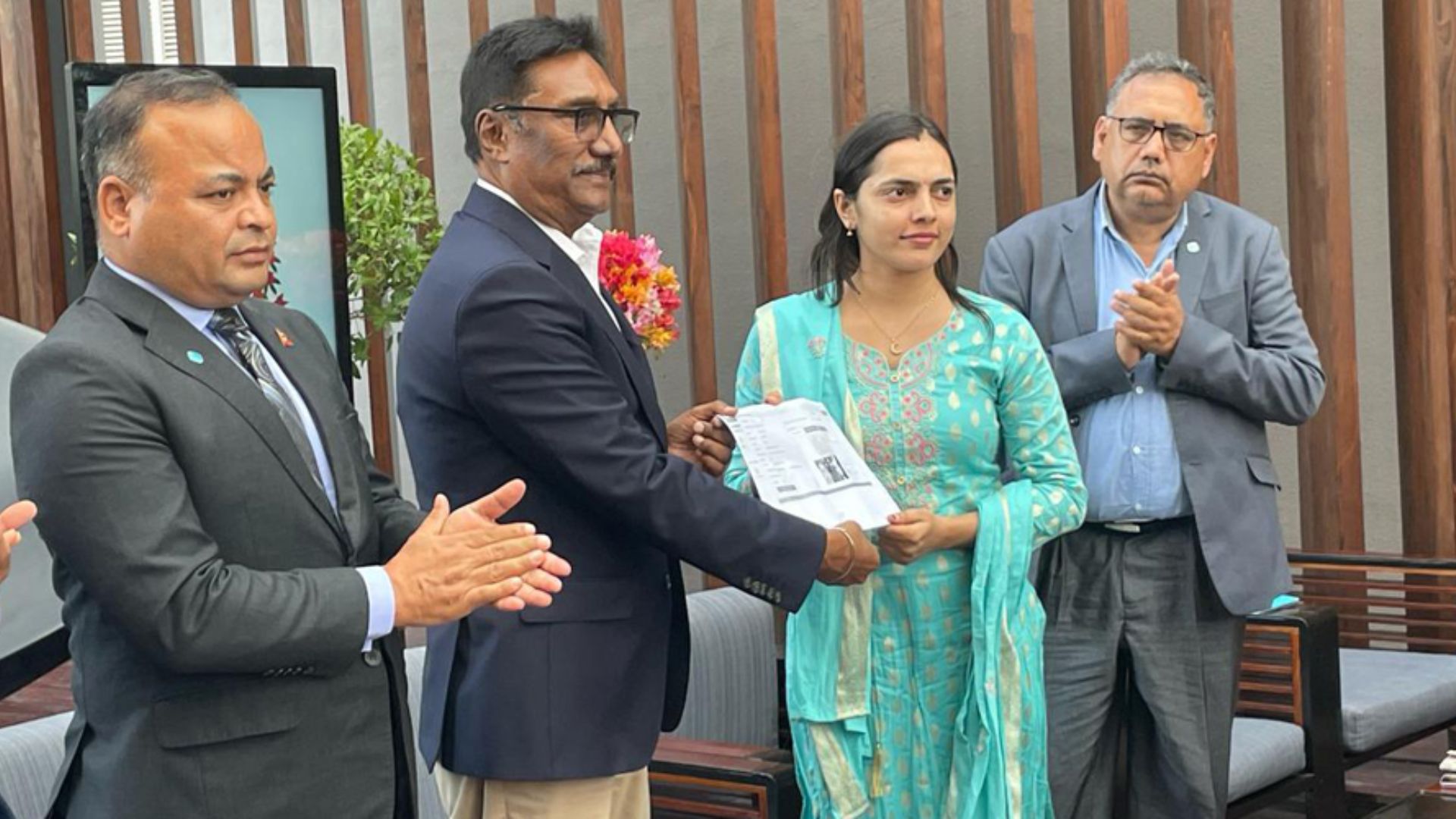
CAN Submits AI Policy Recommendations to Nepal Govt
KATHMANDU: The Computer Association Nepal (CAN) has submitted ten proposals to the government for the country's first national artificial intelligence (AI) policy. Prithvi Subba Gurung, Minister of Communications and Information Technology, received the recommendations following a careful review of the concept paper, Use and Practice of AI in Nepal.
A project team including Ganga Bhandari, Advocate Diksha Raut, Prof. Dr. Sudan Jha, and Chiranjivi Adhikari-can Vice President and Coordinator of AI-generated ideas. Their analysis emphasizes the need for a concrete AI policy tailored to the distinct needs and situations in Nepal.
One of the key conclusions of the research is the necessity of a precise definition of AI within the Nepali framework. The researchers claim that since the current concept paper falls short in this regard, a precise definition of artificial intelligence is necessary for effective governance.
To enhancing clarity, the CAN suggested producing a lexicon that includes technical terms such as artificial intelligence (AI), machine learning, and data privacy. This must be referred to by policymakers and other stakeholders for a proper understanding of the concepts.
Realizing the extent of AI that cuts across several sectors, the institution called on government support in the use of the technology for vital industries like disaster risk reduction, health care, and agriculture, as its innovations are likely to greatly scale such industries by increasing efficiency and effectiveness.
While this, CAN underscored the virtue of cross-sector collaborated active participation from private sector, NGOs, government agencies, local governments, and educational institutions in multi-sectoral synergizing at cross levels in order to develop an inspiring AI ecosystem.
Strong legal framework was another imperative requirement and CAN promoted stringent data protection laws for the regulation of artificial intelligence-related data. This involved the specific principles regarding data management as related to data security, privacy, and cleansing.
CAN suggested fostering collaboration with other countries on data sharing to boost AI research and application. Working abroad would allow Nepal to tap into world resources and bolster the speed of progress in using AI.
Another crucial topic raised was the preservation of Nepal's data sovereignty. CAN emphasized the need for Nepal to establish its own independent and operational data center in order to reduce reliance on foreign infrastructure and safeguard sensitive data.
One of the main investment goals mentioned was the advancement of AI. CAN recommended funding AI-related projects, offering scholarships to advance AI education, and establishing specific AI research centers in universities to foster innovation.
Since CAN compels the government to develop AI tools specific to the needs of the country and the Nepali language, localization is another crucial area of work. This would ensure AI's efficacy and accessibility for a variety of local uses.
Given the global trend in AI penetrating areas as a business aspect of its influence, CAN's proposals seek to help Nepal with a more systematic and strategic approach to developing artificial intelligence. The future AI legislation and the country's overall digital transformation may well depend on the government's response to these recommendations.
Also Read: Nepal Begins Online Labour Permit Approval from UAE







.jpeg)
